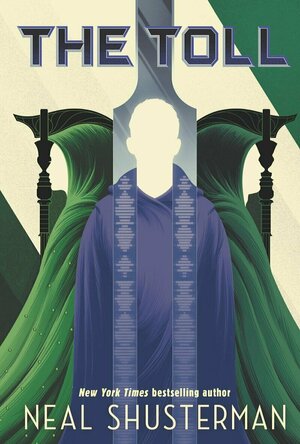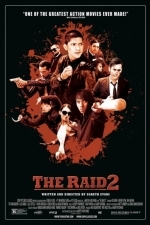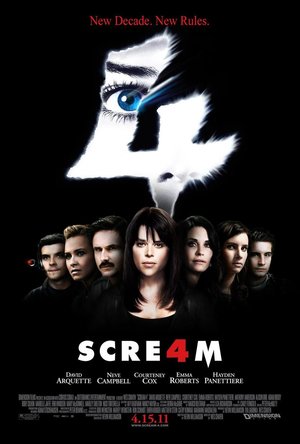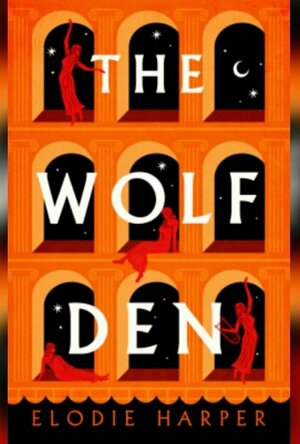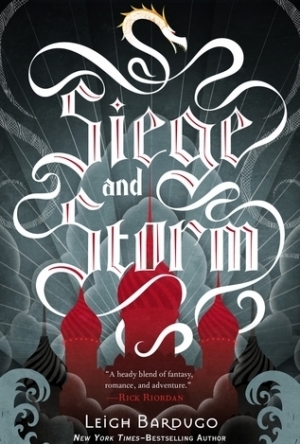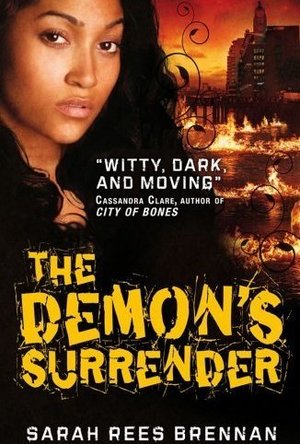Search
Search results
Ivana A. | Diary of Difference (1171 KP) rated The Toll (Arc of a Scythe, #3) in Books
Feb 3, 2020
<a href="https://amzn.to/2Wi7amb">Wishlist</a>; | <a
<a href="https://diaryofdifference.com/">Blog</a>; | <a href="https://www.facebook.com/diaryofdifference/">Facebook</a>; | <a href="https://twitter.com/DiaryDifference">Twitter</a>; | <a href="https://www.instagram.com/diaryofdifference/">Instagram</a>; | <a href="https://www.pinterest.co.uk/diaryofdifference/pins/">Pinterest</a>;
#1 <a href="https://www.goodreads.com/review/show/2656699288">Scythe</a>; - ★★★★★
#2 <a href="https://www.goodreads.com/review/show/2998629500">Thunderhead</a>; - ★★★★★
#3 <a href="https://www.goodreads.com/review/show/3080800725">The Toll</a> - ★★★★★
<img src="https://diaryofdifference.com/wp-content/uploads/2020/01/Book-Review-Banner-20.png"/>;
And here is my review of The Toll. We have reached the end of the series, guys.
It’s been three years since Rowan and Citra disappeared; since Scythe Goddard came into power; since the Thunderhead closed itself off to everyone but Grayson Tolliver.
In this pulse-pounding conclusion to New York Times bestselling author Neal Shusterman’s Arc of a Scythe trilogy, constitutions are tested and old friends are brought back from the dead.
I don’t know how to even start this review, because I have so many emotions still! I am so in love with this series. With this finale. I am also so sad that the journey ends here and I have to part ways, re-visiting these books but never reading new ones.
A wonderful world, where death is no more, and two scythe apprentices, with the willpower to be great - they stuck to me, and they grew on me, and they did capture my heart.
<b><i>Rowan - a hero never understood.</i></b>
Fighting for the good in a bad way. Himself against the world, not afraid to give his life for the people he cares about. I salute you, Scythe Lucifer!
<b><i>Citra - a woman born to be a leader.</i></b>
A powerful force that moves the Earth she walks upon. A compassion and kindness mixed with the force of unfairness. Ready to stand up when no one else does and not afraid to do things differently. I salute you, Scythe Anastasia.
And to all the rest of the characters, and believe me, there are so many that are just as important, I also bow to you. For fighting for what you believe in, for being better humans than most and for helping a person in need. You will never be forgotten.
<b><i>Neal Shusterman, the hero of this book.</i></b>
The creator of wonderful worlds. I bow to you and I thank you for giving me a world worth remembering. For creating the Thunderhead to lead us into the future, and for giving us a glimpse of possibilities and opportunities of the “what might be”. I have endless love for your writing and will continue to be excited and read every new book you write.
I have noticed, when I really love a book and want to shout about it to everyone I know, it is quite hard to do so without spilling any spoilers. How do you write a review of mentioning all the things you loved, without ruining the story for someone else?
<b><i>Let’s try it this way:</i></b>
Guys, have a look at my review of Scythe, the first book in the series. Then read the book. Then read my review of Thunderhead. Read that book as well. And then come here, read this blurb, finish the series and find me either here, or on Instagram and Twitter, so I can tell you all the spoilers! :)
No, honestly, if you love science-fiction with a twist of fantasy and dystopia, this will be a book you will cherish forever.
<a href="https://amzn.to/2Wi7amb">Wishlist</a>; | <a
<a href="https://diaryofdifference.com/">Blog</a>; | <a href="https://www.facebook.com/diaryofdifference/">Facebook</a>; | <a href="https://twitter.com/DiaryDifference">Twitter</a>; | <a href="https://www.instagram.com/diaryofdifference/">Instagram</a>; | <a href="https://www.pinterest.co.uk/diaryofdifference/pins/">Pinterest</a>;
<a href="https://diaryofdifference.com/">Blog</a>; | <a href="https://www.facebook.com/diaryofdifference/">Facebook</a>; | <a href="https://twitter.com/DiaryDifference">Twitter</a>; | <a href="https://www.instagram.com/diaryofdifference/">Instagram</a>; | <a href="https://www.pinterest.co.uk/diaryofdifference/pins/">Pinterest</a>;
#1 <a href="https://www.goodreads.com/review/show/2656699288">Scythe</a>; - ★★★★★
#2 <a href="https://www.goodreads.com/review/show/2998629500">Thunderhead</a>; - ★★★★★
#3 <a href="https://www.goodreads.com/review/show/3080800725">The Toll</a> - ★★★★★
<img src="https://diaryofdifference.com/wp-content/uploads/2020/01/Book-Review-Banner-20.png"/>;
And here is my review of The Toll. We have reached the end of the series, guys.
It’s been three years since Rowan and Citra disappeared; since Scythe Goddard came into power; since the Thunderhead closed itself off to everyone but Grayson Tolliver.
In this pulse-pounding conclusion to New York Times bestselling author Neal Shusterman’s Arc of a Scythe trilogy, constitutions are tested and old friends are brought back from the dead.
I don’t know how to even start this review, because I have so many emotions still! I am so in love with this series. With this finale. I am also so sad that the journey ends here and I have to part ways, re-visiting these books but never reading new ones.
A wonderful world, where death is no more, and two scythe apprentices, with the willpower to be great - they stuck to me, and they grew on me, and they did capture my heart.
<b><i>Rowan - a hero never understood.</i></b>
Fighting for the good in a bad way. Himself against the world, not afraid to give his life for the people he cares about. I salute you, Scythe Lucifer!
<b><i>Citra - a woman born to be a leader.</i></b>
A powerful force that moves the Earth she walks upon. A compassion and kindness mixed with the force of unfairness. Ready to stand up when no one else does and not afraid to do things differently. I salute you, Scythe Anastasia.
And to all the rest of the characters, and believe me, there are so many that are just as important, I also bow to you. For fighting for what you believe in, for being better humans than most and for helping a person in need. You will never be forgotten.
<b><i>Neal Shusterman, the hero of this book.</i></b>
The creator of wonderful worlds. I bow to you and I thank you for giving me a world worth remembering. For creating the Thunderhead to lead us into the future, and for giving us a glimpse of possibilities and opportunities of the “what might be”. I have endless love for your writing and will continue to be excited and read every new book you write.
I have noticed, when I really love a book and want to shout about it to everyone I know, it is quite hard to do so without spilling any spoilers. How do you write a review of mentioning all the things you loved, without ruining the story for someone else?
<b><i>Let’s try it this way:</i></b>
Guys, have a look at my review of Scythe, the first book in the series. Then read the book. Then read my review of Thunderhead. Read that book as well. And then come here, read this blurb, finish the series and find me either here, or on Instagram and Twitter, so I can tell you all the spoilers! :)
No, honestly, if you love science-fiction with a twist of fantasy and dystopia, this will be a book you will cherish forever.
<a href="https://amzn.to/2Wi7amb">Wishlist</a>; | <a
<a href="https://diaryofdifference.com/">Blog</a>; | <a href="https://www.facebook.com/diaryofdifference/">Facebook</a>; | <a href="https://twitter.com/DiaryDifference">Twitter</a>; | <a href="https://www.instagram.com/diaryofdifference/">Instagram</a>; | <a href="https://www.pinterest.co.uk/diaryofdifference/pins/">Pinterest</a>;
JT (287 KP) rated The Raid 2 (2014) in Movies
Mar 10, 2020
Stop….pause….take a breath, you’ll need to catch it after witnessing one of the finest action films made for some time.
The follow up to The Raid packs an even harder punch, with our hero Rama (Iko Uwais) sent undercover to bring down a crime family and uncover yet more police corruption.
The first film was simplistic enough, a SWAT team enter a building and (without the use of an elevator) must navigate their way up to the top floor to bring down a powerful but mediocre drug lord. Praised for its gritty no holds barred fight sequences, and perfectly timed action it was nothing short of a hit.
Part 2 follows practically from where the last ended, Rama is hurried away to a secluded location and given the rundown explaining that all his efforts were for nothing, but that he still has a big part to play. Although he doesn’t have much of a choice in the matter.
The-Raid-2-Gareth-Evans
To keep his family safe he has to get close to the arrogant son of a mob boss, Ucok (Arifin Putra), and to do this must infiltrate a prison by committing a high profile crime that will get him noticed by the mafia top brass. What is only supposed to be a few months turns into a couple of years, giving Rama more than enough time to get right under the skin of Ucok.
The storyline isn’t anything unique with shades of Infernal Affairs about it, police corruption, undercover cops and feuding mafia families probably seem all too familiar but director Gareth Evans lays it out in such a way that the similarities end right there.
The story delves deeper into several subplots all of which trail off on their own, but they don’t hamper the overall narrative or confuse things in a way which will make the film harder to follow and at an ass numbing 150 minutes that might be easier said than done.
Then there is the inclusion of three of the badest characters you’re ever likely to see. Hammer Girl, whose special moves entail ripping people in two with claw hammers, Baseball Bat Man, you can probably guess his unique ability and then The Assassin, who armed with a pair of kerambits’ is a silent but very much a deadly force.
There’s returning actor Yayan Ruhian who played Mad Dog in the first film but who has reappeared here as an ass-kicking hobo aiding one of the families, but ends up in the crosshairs of an instigated war were blood hasn’t been spilt in over ten years.
Evans cuts from the action with dramatic undertones, of which the performances are very good, its the gratuitous violence that Raid fans will have shelled out their money for. It’s wince-inducing on another level, whether it’s getting an arm snapped in half, a pelvis dislocated or a hammer ripped through someone’s cheek you’ll probably find yourself twisting and turning in your seat.
the-raid-2-berandal-26
The choreography is mesmerising as Evans interlocks a Godfather-like tale with action that doesn’t give you enough time to look away from the screen. From a mass prison yard scrap, an epic car chase where back seat driving takes on a whole different meaning and a jaw-dropping kitchen fight finale, it’s a film that will live long in the action memory.
Leaving the confines of a tower block behind the action and story run riot through lush green marshes, back streets and bars to city streets. The editing is short and sharp like a punch to the head, moving gracefully enough that it doesn’t judder the explosive action or disjoint the scenes of real drama.
It’s thoroughly entertaining which has justified all the hype beforehand, wonderfully shot and exhilarating throughout Evans will have his work cut out to make sure that The Raid 3 caps an action trilogy masterclass.
The follow up to The Raid packs an even harder punch, with our hero Rama (Iko Uwais) sent undercover to bring down a crime family and uncover yet more police corruption.
The first film was simplistic enough, a SWAT team enter a building and (without the use of an elevator) must navigate their way up to the top floor to bring down a powerful but mediocre drug lord. Praised for its gritty no holds barred fight sequences, and perfectly timed action it was nothing short of a hit.
Part 2 follows practically from where the last ended, Rama is hurried away to a secluded location and given the rundown explaining that all his efforts were for nothing, but that he still has a big part to play. Although he doesn’t have much of a choice in the matter.
The-Raid-2-Gareth-Evans
To keep his family safe he has to get close to the arrogant son of a mob boss, Ucok (Arifin Putra), and to do this must infiltrate a prison by committing a high profile crime that will get him noticed by the mafia top brass. What is only supposed to be a few months turns into a couple of years, giving Rama more than enough time to get right under the skin of Ucok.
The storyline isn’t anything unique with shades of Infernal Affairs about it, police corruption, undercover cops and feuding mafia families probably seem all too familiar but director Gareth Evans lays it out in such a way that the similarities end right there.
The story delves deeper into several subplots all of which trail off on their own, but they don’t hamper the overall narrative or confuse things in a way which will make the film harder to follow and at an ass numbing 150 minutes that might be easier said than done.
Then there is the inclusion of three of the badest characters you’re ever likely to see. Hammer Girl, whose special moves entail ripping people in two with claw hammers, Baseball Bat Man, you can probably guess his unique ability and then The Assassin, who armed with a pair of kerambits’ is a silent but very much a deadly force.
There’s returning actor Yayan Ruhian who played Mad Dog in the first film but who has reappeared here as an ass-kicking hobo aiding one of the families, but ends up in the crosshairs of an instigated war were blood hasn’t been spilt in over ten years.
Evans cuts from the action with dramatic undertones, of which the performances are very good, its the gratuitous violence that Raid fans will have shelled out their money for. It’s wince-inducing on another level, whether it’s getting an arm snapped in half, a pelvis dislocated or a hammer ripped through someone’s cheek you’ll probably find yourself twisting and turning in your seat.
the-raid-2-berandal-26
The choreography is mesmerising as Evans interlocks a Godfather-like tale with action that doesn’t give you enough time to look away from the screen. From a mass prison yard scrap, an epic car chase where back seat driving takes on a whole different meaning and a jaw-dropping kitchen fight finale, it’s a film that will live long in the action memory.
Leaving the confines of a tower block behind the action and story run riot through lush green marshes, back streets and bars to city streets. The editing is short and sharp like a punch to the head, moving gracefully enough that it doesn’t judder the explosive action or disjoint the scenes of real drama.
It’s thoroughly entertaining which has justified all the hype beforehand, wonderfully shot and exhilarating throughout Evans will have his work cut out to make sure that The Raid 3 caps an action trilogy masterclass.
Gareth von Kallenbach (980 KP) rated Scream 4 (2011) in Movies
Aug 7, 2019
Over a decade ago, director Wes Craven and writer Kevin Williamson breathed new life into what had become a very stagnant horror genre with the release of Scream. The film was a clever twist on the killer-on-the-loose theme that had dominated the genre since the 80s and scored huge with audiences who loved the twists and turns of the film as well as the characters who quoted rules for surviving a horror film. With the huge success of the film, two sequels followed. But by the time Scream 3 was released, the series had lost its momentum and was becomeing the very cliche of a horror film that the series had originally made fun of.
Now in 2011, Craven and Williamson have returned with Scream 4, which is the planned first film in a new trilogy for the series with hopes to breath new life in a genre that has once again grown stale with ghost films and the so-called torture porn of the Saw films. Scream 4 is set 10 years after the events of the first film, and with a new book to promote, Sidney Prescott (Neve Campbell), has returned to Woodsboro as a best-selling author, thanks to her book on self-empowerment, a direct result of her experiences in the previous three films.
The return of Sidney is a happy moment for Sherrif Dewey Riley (David Arquette), but not so much for his wife Gale (Courtney Cox), who is facing a bad case of writer’s block and is not exactly thrilled with her fade from the spotlight and life as the wife of the sheriff in the small town. Things get shaken up when a couple of gruesome murders are discovered and before long Sidney is being targeted by a killer who seems to be repeating the pattern of killing that had haunted her in the past.
When the killer strikes again and taunts Sidney with a disturbing phone call, Gale sees the chance to regain her former glory and despite the wishes of her husband Dewey, sets out to solve the mystery of the killer before it is too late.
What follows is a twisting and turning plot that has you seeing suspects everywhere as the body count piles up.
The film introduces some new faces into the series and Hayden Panettiere and Emma Roberts make the best of their roles and actually bring some depth to their characters. Of course there are numerous horror and pop culture references in the film which not only lighten the tension but help with the plot. The killings are graphic and the mix of comedy and horror is in good balance. As usual, people are really dumb just before they get theirs and do not do things like phone for help, take a safer route, and so on, but the film is still enjoyable from a horror fan’s perspective.
There are some nice celebrity cameos in the film and while the film did drag a bit in the final act before the conclusion, the film did redeem itself in the end. While it is not in danger of being cited for a deep plot, original story, or deep characters with wide character arcs, Scream 4 knows who its target audience is and what the audience expects. Some may say the series stayed away top long and has lost its edge and simply repeats the pattern and plot lines we’ve seen in the previous films. In the end, despite some issues, Scream 4 delivers a welcome return to the franchise and paves the way for future sequels in a manner which should delight fans of the genre and franchise.
Now in 2011, Craven and Williamson have returned with Scream 4, which is the planned first film in a new trilogy for the series with hopes to breath new life in a genre that has once again grown stale with ghost films and the so-called torture porn of the Saw films. Scream 4 is set 10 years after the events of the first film, and with a new book to promote, Sidney Prescott (Neve Campbell), has returned to Woodsboro as a best-selling author, thanks to her book on self-empowerment, a direct result of her experiences in the previous three films.
The return of Sidney is a happy moment for Sherrif Dewey Riley (David Arquette), but not so much for his wife Gale (Courtney Cox), who is facing a bad case of writer’s block and is not exactly thrilled with her fade from the spotlight and life as the wife of the sheriff in the small town. Things get shaken up when a couple of gruesome murders are discovered and before long Sidney is being targeted by a killer who seems to be repeating the pattern of killing that had haunted her in the past.
When the killer strikes again and taunts Sidney with a disturbing phone call, Gale sees the chance to regain her former glory and despite the wishes of her husband Dewey, sets out to solve the mystery of the killer before it is too late.
What follows is a twisting and turning plot that has you seeing suspects everywhere as the body count piles up.
The film introduces some new faces into the series and Hayden Panettiere and Emma Roberts make the best of their roles and actually bring some depth to their characters. Of course there are numerous horror and pop culture references in the film which not only lighten the tension but help with the plot. The killings are graphic and the mix of comedy and horror is in good balance. As usual, people are really dumb just before they get theirs and do not do things like phone for help, take a safer route, and so on, but the film is still enjoyable from a horror fan’s perspective.
There are some nice celebrity cameos in the film and while the film did drag a bit in the final act before the conclusion, the film did redeem itself in the end. While it is not in danger of being cited for a deep plot, original story, or deep characters with wide character arcs, Scream 4 knows who its target audience is and what the audience expects. Some may say the series stayed away top long and has lost its edge and simply repeats the pattern and plot lines we’ve seen in the previous films. In the end, despite some issues, Scream 4 delivers a welcome return to the franchise and paves the way for future sequels in a manner which should delight fans of the genre and franchise.

Infected by Scott Sigler
Podcast
Across America a mysterious disease is turning ordinary people into raving, paranoid murderers who...
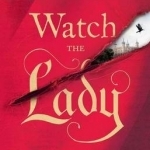
Watch the Lady
Book
The Queen's God Daughter. Her Most Trusted Maid. Adultress. Enemy Of The State. Who is The Real...
Lottie disney bookworm (1056 KP) rated The Wolf Den in Books
Jun 17, 2021
(As you may expect from the subject matter of this book, I am highlighting trigger warnings of rape, sexual abuse, violence, slavery and suicide.)
“May I know love’s power, if never its sweetness.”
The Wolf Den is a magnifying glass into the world of Pompeii’s prostitutes: forgotten women who are owned and controlled by both men and society. This no-holds-barred novel follows Amara, a beautiful and educated doctor’s daughter who was enslaved after the death of her father and now is a she-wolf, a prostitute in Pompeii’s largest brothel, The Wolf Den.
Elodie Harper’s novel is told entirely from Amara’s perspective. This gives our main character a rare sense of power, the power to provide names to these previously nameless women and to make the reader care for these women, becoming entirely invested in their story. Alongside Amara; Dido, Victoria, Cressa, Beronice and Britannica experience violence, desperation, pain and loss but also highlight the power of friendship. This is not an easy read at all but Harper’s characters are so captivating it was impossible to put this book down.
Amara herself is such a complex character: she has an overwhelming amount of inner strength as she accepts her fate as a slave. At times this is heart-breaking when you gain glimpses of her previous life but accepting her fate does not mean Amara ever stops striving for freedom. She may have to change her idea of what happily ever after consists of but Amara will never stop working towards it, no matter the cost.
By no means is Amara perfect, there are definitely some questionable actions by our protagonist. However, Harper paints the she-wolves lives so acutely and tragically that the reader can never blame Amara: we don’t always agree with her actions but you can see that she has to protect herself because she literally has no one else to do it for her.
Amara is also clever, sometimes too clever for her owner Felix who is quick to punish her for speaking out of turn. However, once Amara proves that her previous education can be profitable, Felix is on board, taking Amara down a new path and raising the reader’s hopes of a happy outcome for our favourite she-wolf. This is a credit to the characterisation within this novel: that as the readers witness possible happy endings being ripped away, our sheer desperation increases with Amara’s.
Despite her fascinating characters, Elodie Harper does not rest on her laurels and completely immerses her readers in the landscape of Pompeii. From the filthy cobbled streets to the graffiti to the shops, inns and sellers in the forum, everything is described in the most magnificent historical detail.
Harper also entrenches her characters in the class system, whereby a customer of a higher social status is often a target but seemingly out of reach for the she-wolves: a lower class of man is easy to attract but can often be violent. And love? Well that is just a fantasy!
Initially I have to tell you that I was slightly disappointed by the ending of The Wolf Den: the chapters leading up to the finale were so emotional and action-packed that the final lines almost fell flat. HOWEVER, this was all turned on its head when I was told The Wolf Den is merely the first in a trilogy! Now that I know Amara will be back I am eager to see what else she has in store for us.
Thank you to Netgalley for the opportunity to read this e-ARC in exchange for an honest review.
“May I know love’s power, if never its sweetness.”
The Wolf Den is a magnifying glass into the world of Pompeii’s prostitutes: forgotten women who are owned and controlled by both men and society. This no-holds-barred novel follows Amara, a beautiful and educated doctor’s daughter who was enslaved after the death of her father and now is a she-wolf, a prostitute in Pompeii’s largest brothel, The Wolf Den.
Elodie Harper’s novel is told entirely from Amara’s perspective. This gives our main character a rare sense of power, the power to provide names to these previously nameless women and to make the reader care for these women, becoming entirely invested in their story. Alongside Amara; Dido, Victoria, Cressa, Beronice and Britannica experience violence, desperation, pain and loss but also highlight the power of friendship. This is not an easy read at all but Harper’s characters are so captivating it was impossible to put this book down.
Amara herself is such a complex character: she has an overwhelming amount of inner strength as she accepts her fate as a slave. At times this is heart-breaking when you gain glimpses of her previous life but accepting her fate does not mean Amara ever stops striving for freedom. She may have to change her idea of what happily ever after consists of but Amara will never stop working towards it, no matter the cost.
By no means is Amara perfect, there are definitely some questionable actions by our protagonist. However, Harper paints the she-wolves lives so acutely and tragically that the reader can never blame Amara: we don’t always agree with her actions but you can see that she has to protect herself because she literally has no one else to do it for her.
Amara is also clever, sometimes too clever for her owner Felix who is quick to punish her for speaking out of turn. However, once Amara proves that her previous education can be profitable, Felix is on board, taking Amara down a new path and raising the reader’s hopes of a happy outcome for our favourite she-wolf. This is a credit to the characterisation within this novel: that as the readers witness possible happy endings being ripped away, our sheer desperation increases with Amara’s.
Despite her fascinating characters, Elodie Harper does not rest on her laurels and completely immerses her readers in the landscape of Pompeii. From the filthy cobbled streets to the graffiti to the shops, inns and sellers in the forum, everything is described in the most magnificent historical detail.
Harper also entrenches her characters in the class system, whereby a customer of a higher social status is often a target but seemingly out of reach for the she-wolves: a lower class of man is easy to attract but can often be violent. And love? Well that is just a fantasy!
Initially I have to tell you that I was slightly disappointed by the ending of The Wolf Den: the chapters leading up to the finale were so emotional and action-packed that the final lines almost fell flat. HOWEVER, this was all turned on its head when I was told The Wolf Den is merely the first in a trilogy! Now that I know Amara will be back I am eager to see what else she has in store for us.
Thank you to Netgalley for the opportunity to read this e-ARC in exchange for an honest review.
Becs (244 KP) rated Siege and Storm in Books
Aug 25, 2019
Nikolai (2 more)
the Darkling
THAT ENDING
has major middle book syndrome (3 more)
main character is still annoying
mal is still a horrible character
there wasn't a lot of the Darkling when the books are supposed to be about him as a villain
Has middle book syndrome B A D but the last half of the book is great!
You can also find this review on my blog: bookingwayreads.wordpress.com
TRIGGER WARNINGS: torture, murder, war themes, hallucinations, death, blood, manipulation, violence
Review:
I originally rated this 4 out of 5 stars but I am dropping it down to 3.5 out of 5 stars as I’ve had a lot of time to think about my review and have realized that Siege and Storm has middle book syndrome.
My one problem with Siege and Storm, is that it needed more of the Darkling in it. The Shadow and Bone Trilogy is about the Darkling being the villain and Siege and Storm did not deliver. You’d think there would have been more of a prescense, but there was just not enough of him! Please take Mal away and replace him with the Darkling!! Also, what in the good lordy fucks was that ending Leigh?! ARE YOU TRYING TO KILL US!? I. AM. DEAD.
I still have an ever growing dislike for Mal. He doesn’t have one bit of empathy in his body and it’s so frustrating! Like he’s supposed to be that rock that Alina can fall back onto for support and he’s just being a douche about her having powers. Can we just replace all of Mal’s scenes with more of my BB’s Nikolai and the Darkling plz?! Nikolai had the best character development and was the most relatable in the entire series thus far.
I’ve not really grown to like Alina as much like others do, as she’s still the same annoying girl that I wish wasn’t as special as she is. One thing I do like about her though, is the whole anti hero darkness she has brewing along with the inner turmoil she’s dealing with. With her new found power enhancements, but I just wish her powers weren’t vaguely talked about.
Another thing I wasn’t entirely a fan of was the love triangle *cough cough* love SQUARE *cough cough* trope that took place throughout the novel. Don’t get me wrong, it was extremely well-written and really filled in some (read: a lot of the) boring parts. BUT, this trope is extremely overrated and can really ruin a novel. It was rather annoying that Alina had all of these men to choose from and she couldn’t make up her mind about any of them. Plus, I don’t think she deserves any of them. So… yea.
Okay, onto the story itself. The first half was… such… a… bore… It was so freaking slow and I wanted to give up on it so much. It also kind of put me into a slump on picking up Ruin and Rising. I just didn’t want to be disappointed like I was with Siege and Storm. The second half of the story on the other hand, was packed to the max with intense scenes and action. I honestly thought my wittle heart would crack into a million pieces.
Leigh’s writing style is extremely unique and well-done. She’s able to write scenes that not only grip your attention, but will also pluck each heart string until that breaking point. Then it will rip your heart out of your chest with one swift moment.
Other than a few bumps, Siege and Storm was captivating to a point, but not as much as Shadow and Bone. It’s a soul sucker of a book and I’m enamored with it. The world-building is some of the best I’ve ever seen, especially for a series. The tensions in scenes is extremely palpable – making this a great sequel to an amazing series.
“You know the problem with heroes and saints Nikolai? They always end up dead.
TRIGGER WARNINGS: torture, murder, war themes, hallucinations, death, blood, manipulation, violence
Review:
I originally rated this 4 out of 5 stars but I am dropping it down to 3.5 out of 5 stars as I’ve had a lot of time to think about my review and have realized that Siege and Storm has middle book syndrome.
My one problem with Siege and Storm, is that it needed more of the Darkling in it. The Shadow and Bone Trilogy is about the Darkling being the villain and Siege and Storm did not deliver. You’d think there would have been more of a prescense, but there was just not enough of him! Please take Mal away and replace him with the Darkling!! Also, what in the good lordy fucks was that ending Leigh?! ARE YOU TRYING TO KILL US!? I. AM. DEAD.
I still have an ever growing dislike for Mal. He doesn’t have one bit of empathy in his body and it’s so frustrating! Like he’s supposed to be that rock that Alina can fall back onto for support and he’s just being a douche about her having powers. Can we just replace all of Mal’s scenes with more of my BB’s Nikolai and the Darkling plz?! Nikolai had the best character development and was the most relatable in the entire series thus far.
I’ve not really grown to like Alina as much like others do, as she’s still the same annoying girl that I wish wasn’t as special as she is. One thing I do like about her though, is the whole anti hero darkness she has brewing along with the inner turmoil she’s dealing with. With her new found power enhancements, but I just wish her powers weren’t vaguely talked about.
Another thing I wasn’t entirely a fan of was the love triangle *cough cough* love SQUARE *cough cough* trope that took place throughout the novel. Don’t get me wrong, it was extremely well-written and really filled in some (read: a lot of the) boring parts. BUT, this trope is extremely overrated and can really ruin a novel. It was rather annoying that Alina had all of these men to choose from and she couldn’t make up her mind about any of them. Plus, I don’t think she deserves any of them. So… yea.
Okay, onto the story itself. The first half was… such… a… bore… It was so freaking slow and I wanted to give up on it so much. It also kind of put me into a slump on picking up Ruin and Rising. I just didn’t want to be disappointed like I was with Siege and Storm. The second half of the story on the other hand, was packed to the max with intense scenes and action. I honestly thought my wittle heart would crack into a million pieces.
Leigh’s writing style is extremely unique and well-done. She’s able to write scenes that not only grip your attention, but will also pluck each heart string until that breaking point. Then it will rip your heart out of your chest with one swift moment.
Other than a few bumps, Siege and Storm was captivating to a point, but not as much as Shadow and Bone. It’s a soul sucker of a book and I’m enamored with it. The world-building is some of the best I’ve ever seen, especially for a series. The tensions in scenes is extremely palpable – making this a great sequel to an amazing series.
“You know the problem with heroes and saints Nikolai? They always end up dead.
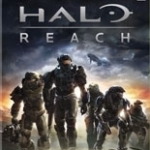
Halo Reach
Video Game
Because Halo is the best-selling Xbox franchise of all-time, the developers at Bungie had their work...
Mariafrancesca (30 KP) rated The Demon’s surrendee (Demon’s Lexicon #3) in Books
Apr 7, 2019
This is a review for the whole series
I read these books because a friend of mine suggested them and she enjoyed them very much. I really like Sarah Rees Brennan style, it is funny and engaging and I really couldn't put these books down. However the end of this trilogy makes me angry, there are so many problems with it that I don't know where to start. I apologise in advance for the mistakes in this review, I am not a native speaker so please be patient.
The Disney happy ending: I don't want to comment the fact that everyone gets paired off here, but what about the magicians? In this book the magicians are evil, they kill people, they are addicted to power, the lousy solution they found through Jamie it's not solid. What happens when Jamie dies? When Nick dies? It can last for 50-60 years, what then? This magicians are not vampires that can drink animal blood, they are addicts that need to kill people in order to have power, this solution is just temporary and I cannot see another way to make it happens afterwards, unless they start to sacrifice babies that is even worse. Moreover they unleash 2 demons on Earth (the most irresponsible and incoherent thing they can do after 3 books of saying how they are pure evil) and the only explanation we get is "winning a war comes with a price"
Diversity: the way diversity is treated in this book is ridiculous. She throws in some black or gay character, family problems, a past of abuses and then she uses them to makes the white rich kids shine. I will talk about Sin in a minute, but what about Seb? He could have been such a precious character instead you see him as bully, then as the magicians' pet, then he gets to date the boy he always loved in secret, after he bullied him for years, just because he's the only gay character still available
All that is wrong with Sin:
The Character: Sin is a strong teenage girl who had a tough life but she has always worked hard to achieve her goal: become the leader of a place that she loves deeply, understands deeply and where she spent her entire life. And when a tourist threats to get the position instead, she is the first to recognise that this girl who has been at the Goblin Market 4 times is better than her in everything. Sin doesn't simply fail, she surrenders to the fact that Mae's is better than her and she just let her have the Market. Sin, that should be the main character of the third book, stays a secondary character with no development other than getting rid of a stupid superstition about limping guys and getting a boyfriend.
Point of view: although I enjoyed Sin's POV far more than Mae's, I can't see the reason of this choice. The previous POV where of main characters who were actually living the situation and acting in the situation. In here Sin, instead of becoming a main character, spends more than half of the book overhearing conversations (with her supernatural hearing) and following Mae's plans. Again, it seems they wanted to show off about the diversity inside this book and instead it results in a joke. Alan's POV, or Jamie's, would have been so much better.
All that is wrong with Mae:
I am not a fan of Mae, I couldn't stand her form the beginning. I don't want to get started on this because I could talk about it for hours but to summarise my opinion, I think that author wanted to go for a character very much like Hermione but much more popular and cool. The problem is that Hermione, even though she is smart and talented, succeeds in everything she does because she works very hard to get there she sacrifice herself for a greater cause, and she has flow and doubts as every teenager. Mae succeeds in everything without any particular reason, she is just lucky and most of the time she doesn't deserve what she gets.
Last but not lest: COULD YOU EXPLAIN HOW ON EARTH A DEMON AND A HUMAN GIRL GET TOGETHER?????
The Disney happy ending: I don't want to comment the fact that everyone gets paired off here, but what about the magicians? In this book the magicians are evil, they kill people, they are addicted to power, the lousy solution they found through Jamie it's not solid. What happens when Jamie dies? When Nick dies? It can last for 50-60 years, what then? This magicians are not vampires that can drink animal blood, they are addicts that need to kill people in order to have power, this solution is just temporary and I cannot see another way to make it happens afterwards, unless they start to sacrifice babies that is even worse. Moreover they unleash 2 demons on Earth (the most irresponsible and incoherent thing they can do after 3 books of saying how they are pure evil) and the only explanation we get is "winning a war comes with a price"
Diversity: the way diversity is treated in this book is ridiculous. She throws in some black or gay character, family problems, a past of abuses and then she uses them to makes the white rich kids shine. I will talk about Sin in a minute, but what about Seb? He could have been such a precious character instead you see him as bully, then as the magicians' pet, then he gets to date the boy he always loved in secret, after he bullied him for years, just because he's the only gay character still available
All that is wrong with Sin:
The Character: Sin is a strong teenage girl who had a tough life but she has always worked hard to achieve her goal: become the leader of a place that she loves deeply, understands deeply and where she spent her entire life. And when a tourist threats to get the position instead, she is the first to recognise that this girl who has been at the Goblin Market 4 times is better than her in everything. Sin doesn't simply fail, she surrenders to the fact that Mae's is better than her and she just let her have the Market. Sin, that should be the main character of the third book, stays a secondary character with no development other than getting rid of a stupid superstition about limping guys and getting a boyfriend.
Point of view: although I enjoyed Sin's POV far more than Mae's, I can't see the reason of this choice. The previous POV where of main characters who were actually living the situation and acting in the situation. In here Sin, instead of becoming a main character, spends more than half of the book overhearing conversations (with her supernatural hearing) and following Mae's plans. Again, it seems they wanted to show off about the diversity inside this book and instead it results in a joke. Alan's POV, or Jamie's, would have been so much better.
All that is wrong with Mae:
I am not a fan of Mae, I couldn't stand her form the beginning. I don't want to get started on this because I could talk about it for hours but to summarise my opinion, I think that author wanted to go for a character very much like Hermione but much more popular and cool. The problem is that Hermione, even though she is smart and talented, succeeds in everything she does because she works very hard to get there she sacrifice herself for a greater cause, and she has flow and doubts as every teenager. Mae succeeds in everything without any particular reason, she is just lucky and most of the time she doesn't deserve what she gets.
Last but not lest: COULD YOU EXPLAIN HOW ON EARTH A DEMON AND A HUMAN GIRL GET TOGETHER?????
